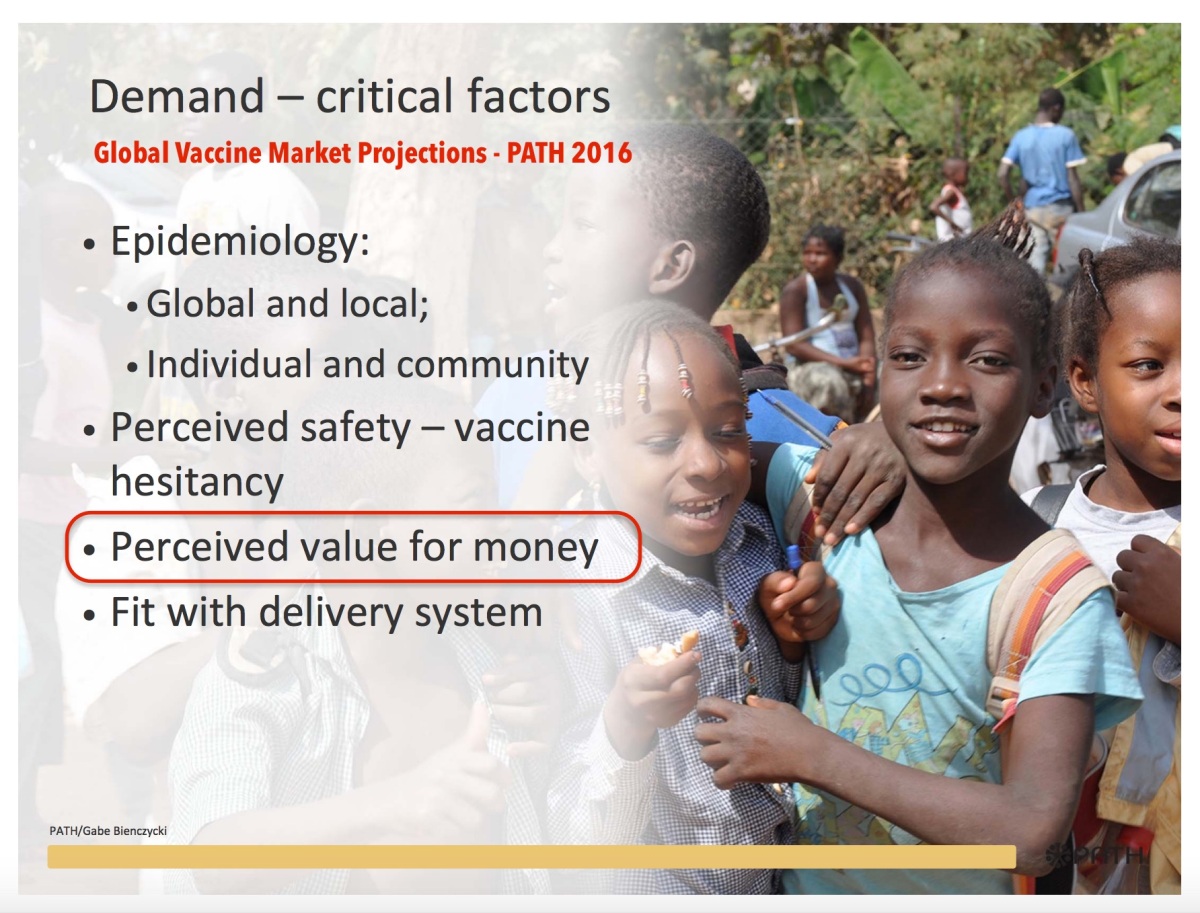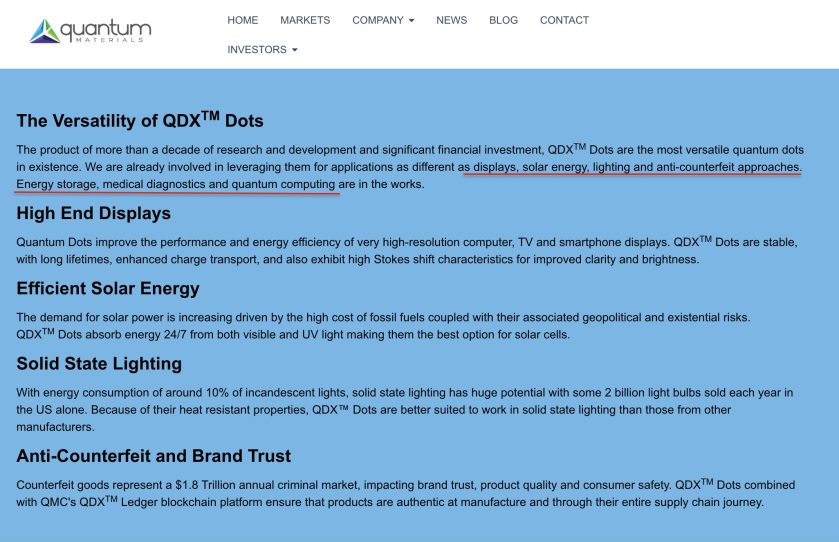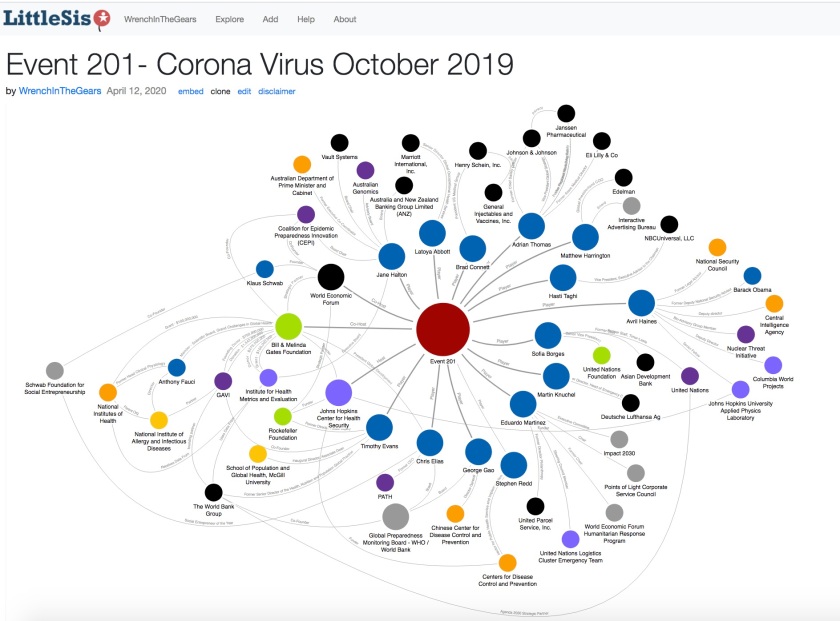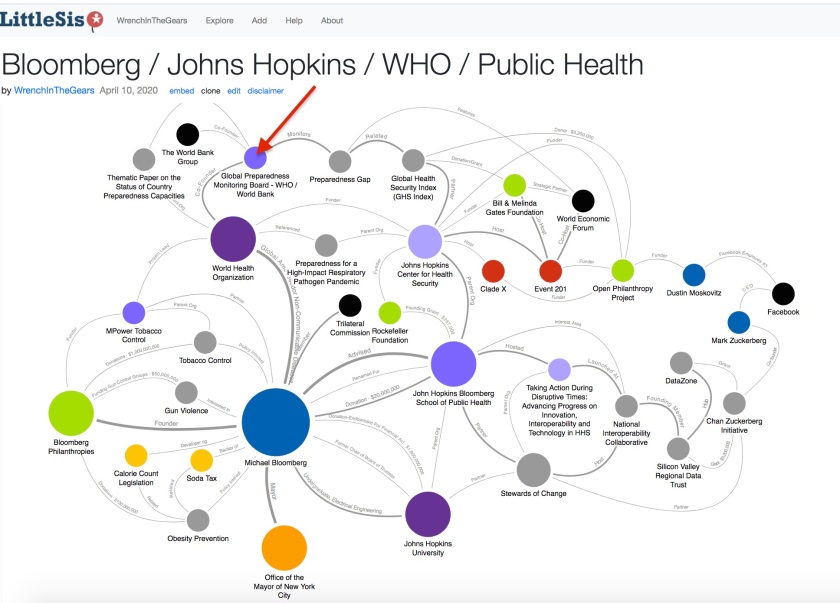Nov 18
20211
4IR Bill Gates Bioengineering Biometrics Biotech Economy Class war. Consult Hyperion Data Economy Digital ID digital identity Good Health Pass ID2020 iProov mRNA MVine Precision Medicine Vaccine Passports VCI WHO
WATCH: Digital ID: Freedom-As-A-Service. The Lure of Entitlement as the Method for Entrapment.
November 18, 2021
“Our identity is, literally, who we are, and as the digital technologies of the Fourth Industrial Revolution advance, our identity is increasingly digital. This digital identity determines what products, services and information we can access – or, conversely, what is closed off to us.”
– September 2018, World Economic Forum insight report, Identity in a Digital World, A new chapter in the social contract
November 1, 2018: “If Dave Birch of Consult Hyperion is correct, identity is the new money.” [Source]
2016: Yesterday’s ID2020 is today’s Good Health Pass, is tomorrows Digital Identity for All. Freedom-As-A-Service [Source]
Digital ID. The commodification of freedom of movement.
From the roll-out of vaccine credentials/accreditations, to obtain health passes (under ID2020 Good Health Pass framework) in order to access services – experimental jabs are the portal to achieving a digital identification global infrastructure – an imperative for a seamless functioning of “ecosystems” (digital finance/wallets, data economy, smart cities, etc.) within the fourth industrial revolution digital architecture. Via framing, marketing, and the branding of bourgeois access, what was formerly recognized as freedom of movement, “the most indelible of rights” (Steppling), is now being repacked as an entitlement in exchange for compliance, within an unfolding fourth industrial revolution economic caste system.
“By 2030, our goal is to enable access to digital identity for every person on the planet.” — ID2020 2017 Summit
“Figure 1. Screenshots of the proposed digital solution.” – This screenshot is from the 2016 paper Travel Vaccines Enter the Digital Age: Creating a Virtual Immunization Record, by *Kumanan Wilson, Katherine M. Atkinson, and Cameron P. Bell. [*Kumanan Wilson is a physician at The Ottawa Hospital and member of the University of Ottawa Centre for Health Law, Policy and Ethics. Consultant to the World Health Organization on the IHR (2005). Wilson is CEO of CANImmunize Inc., Canada’s national immunization app. CANImmunize is identified as a leading achievement of the Federal Health Minister in 2014; recommended by the Public Health Agency of Canada (PHAC); Recognized by the European Centre for Disease Prevention and Control, and Deloitte Global, as a model for consumer-facing immunization solutions; Certified by the World Health Organization’s VaccineSafetyNet.]
Event 50 – Webinar | Vaccination Passports, March 29, 2021
Consult Hyperion: “Considerable attention is being paid to the topic of vaccination passports… In this webinar our COO, Steve Pannifer, and our Global Ambassador, Dave Birch spoke to Frank Joshi from MVine and Andrew Bud from iProov, who’ve developed one such solution in the UK.”
Consult Hyperion Global Ambassador, David Birch, is an author, advisor and commentator on digital financial services. An internationally recognized and renowned thought leader in digital identity and digital money, he holds a number of board and advisory roles across these fields. He is a Forbes contributor and a columnist for Financial World and has just been ranked one of the top 100 global fintech influencers for 2021. Previously named one of the global top 15 favourite sources of business information by Wired magazine and identified as one of the top ten most influential voices in banking by Financial Brand, he created one of the top 25 “must read” financial IT blogs and was found by PR Daily to be one of the top ten Twitter accounts followed by innovators. [Full bio] Birch is a venture partner in 1414 Ventures – a “digital identity space which supports functions such as payments, cybersecurity, and data privacy & trust.” On Nov. 12, 2020, “One World Identity” announced the formation of their senior advisory board to which David Birch was appointed.
Transcript/excerpt:
Consult Hyperion director Dave Birch: “In the past, and certainly in our webinars, you know, and I’ll lump you and I together for this kind of thing, we sort of assumed it would be the government, or the banks, or whatever, that would get it together and you know, roll out digital [ID]. I don’t know why we thought this, I don’t know, there’s not the slightest evidence they would ever do this, but we sort of thought that would happen. I wonder if what we’re seeing here is the emergence of a different identity infrastructure that’s going to come out in a much more bells and braces way, but ultimately be more effective.
And the reason I think that is, because, if you say to me “Well Dave, you know, you’re going to have a British identity card and prove who you are, well of course, I’ll riot in the streets and complain. You know, its continental tyranny and the podionic imposition and all this sort of thing. Well you say, “Well Dave, if you want to go to the Spoons, so I’m using the democratic andro, trying to be a man of the people here, the spoons, that is where the Wookey [theatre] is … so if I want to go up the Spoons or if I want to see [the] Wookey play, if I’m just told I have to have your vaccines, then I’ll do it. I don’t care. Right? And actually 99% of people in the country wouldn’t care whether that certificate, I mean this is my yellow fever certificate, which is a highly anti-counterfeitable yellow, but you can’t get this yellow paper anywhere. North Korean super note forgers thrown down their pens in frustration (much laughter from panel). And most people wouldn’t care. I mean we have a responsibility as an industry to make sure that infrastructure is privacy enhancing, and to make sure that peoples personal information isn’t spewed all over the internet. But actually I don’t think most people would care.
It’s like if you want to get into the Spoons you have to have one of the passports, they’ll do it. Now to your point about the shared infrastructure, I wonder if this isn’t opening up an amazing opportunity for us. Because if I’ve got, let’s do that as a thought experiment. Wetherspoons have already got the Wetherspoons app, it already exists. They already got people signed up to it. So Wetherspoons come and say, ‘ well we want to connect into your infrastructure to do this’, and so we tell them ‘well okay’, these guys have got grade 12 education and all this kind of thing, where are we going to get the test data from? Oh God, I don’t know, I know. I answer. ‘They’ve got the test centers and the British Airways app has got the API so why don’t we just use… and why can’t we use…’
I’m just curious if you can see this sort of Lego building up and all of a sudden, where we were going to have a national identity card, which nobody wants, and is a catastrophe and they’ll waste billions on it and all this sort of thing, instead we have kind of a national entitlement card. Which comes out, you know, we have a way of carrying these credentials around. I’m allowed in to see Wookey, I’m allowed in to the Spoons, I’m allowed to book a table at this restaurant. Just growing, and I’m sort of excited about the possibility that you guys are just growing an alternative to the kind of identity infrastructure that’s been talked about for years. And I’m just, I’m really curious about how you see your stuff evolving.”
Founder & CEO of iProov, Andrew Bud: “Dave, I think you put your finger on it.”
[Full webinar: https://chyp.com/webinars/span-classwebinar-vaccination-passport-prefix-event-50-span-webinar-vaccination-passports/]
+++
For those who have received the jabs, they may feel this does not affect them. They could not be more wrong. A “health pass” will no longer grant one entry – as soon as the next injection is dictated (by the pharmaceutical industry), or whatever other requirement “to keep us safe” comes along. Until one acquiesces with the new measure (booster or what have you), this person too will be cast out of society – grouped (and shunned) with the “unvaxxed”.
“The pernicious new selling of virtual travel is potentially a way to kill off the dream center of children, to kill their imagination. To move freely, even within the area from which you were born, is in my opinion the most indelible of rights. What is going on is a ruling class soft coup, a less overtly violent coup and their vision of a digital feudal planet is terrifying, if only because it is cannot possibly work. It is delusion.”
— A Solution Without a Solution, September 18, 2021, John Steppling




















